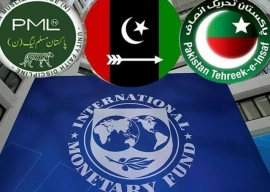1722772162-0/BeFunky-collage]_-(29)1722772162-0.jpg)
People in the eastern Democratic Republic of the Congo (DRC) have lately been caught up in fresh fighting pitting government troops against two rebel groups, the March 23 Movement (M23) and the Allied Democratic Forces (ADF).
Fighting against ADF
In Cantine, a village in the eastern North Kivu Province, about 100 villagers were massacred in early June by ADF rebels; the DRC military vowed to fight back.
"The challenges are numerous for our soldiers, and we have only one message for this population: we are going to win this war," Jacques Ychaligonza Nduru, deputy chief of staff of the DRC armed forces, told Xinhua from Cantine.
The ADF, founded in the 1990s by several opposition movements in Uganda, was defeated by the Ugandan army, but its members have remained active in the eastern DRC. The ADF declared its affiliation with the Islamic State in 2017.
Since late 2021, the Ugandan and Congolese militaries have launched joint operations against ADF rebels in the eastern DRC.
The Congolese army's fight against the ADF started in 2016, when government troops went deep into the forest of the Beni territory, where the village of Cantine is located, to hunt down ADF rebels, who have also been targeted by a special brigade consisting of Tanzanian, Malawian, and South African peacekeepers. In 2017, at least 15 Tanzanian peacekeepers were killed in an ADF attack on their base in Beni.
Since June, ADF rebels have been approaching areas previously controlled by government forces, despite a joint operation by the DRC military and the UN peacekeeping mission in the country, which began in May.
"We are aware of people's concern over this situation, which particularly disturbs us as an army responsible for protecting them and their property," admitted Nduru, in charge of operations and intelligence, who recently traveled to Beni to reassure the population. "Trust us. Trust your army."
ADF, M23 collusion suspected
In addition to the hostilities with ADF rebels, people in the eastern DRC also have to face the advances of M23 fighters, who have taken over several towns since June in the Lubero territory of North Kivu, where the ADF is also active.
According to residents interviewed by Xinhua in Beni and surrounding areas, government soldiers are seen as being overwhelmed by the dual challenge of ADF and M23 rebels. The M23 resurfaced in late 2021 after its defeat in 2013.
"Our soldiers have been engaged in various operations across the country, particularly in North Kivu, for years without rest," said one resident, who requested anonymity. "That is why we have concerns about the advance of the M23 rebellion. That's why we support the community self-defense initiative alongside the army."
In July, recruitment activities were seen in Beni for the creation of local self-defense forces to protect the community against the resurgence of ADF rebels, who are taking advantage of a security vacuum made possible by M23 advances.
"We fear that if the M23 rebels advance, most of the soldiers (deployed here to fight against the ADF) might be withdrawn and sent to operations against the M23," said Mumbere Pascal, a Cantine resident.
Asked by Xinhua about a possible collusion between the M23 and the ADF, military authorities in the area said everything remains to be confirmed by the relevant services.
"The similarity and succession of events in the region are still strange to us," said one military official involved in operations against the rebels. "At a time when we were facing the advance of the M23 rebels in the Lubero territory toward Kanyabayonga, the ADF, which had never attacked in Lubero, also started attacking civilians."
"This raises many questions about the timing of these attacks," he said.
Fresh ceasefire
On Tuesday, it was announced that under the mediation of Angolan President Joao Lourenco, the foreign ministers of the DRC, Angola, and Rwanda agreed on a ceasefire between the warring parties in the eastern DRC, which will come into effect on Aug. 4. The belligerents involved in the ceasefire were not specified.
The fresh ceasefire, welcomed by the United Nations, follows a humanitarian truce between the DRC military and the M23 scheduled to end on Aug. 3.
The ongoing humanitarian truce, however, has not been fully honored, with fighting reported between government troops and M23 rebels in Bweremana, a village in the Masisi territory of North Kivu, where civilians were killed by several bombs.
Earlier, on July 11, the DRC military accused the M23 of violating the truce and denounced their "legendary belligerent attitude" of wanting to keep displaced populations in atrocious conditions by depriving them of humanitarian aid.
A political solution to the M23 crisis has been called for by the international community, including the UN Security Council.
The DRC government has insisted that negotiations on the matter must be conducted within the framework of the Luanda process, as seen in the ministerial meeting held Tuesday.
"We remain firm on our position that any discussion will take place within the framework of the Luanda peace process," initiated by the Angolan president, DRC Foreign Minister Therese Kayikwamba Wagner said in early July, in response to a question about dialogue between the DRC and Rwanda.
The DRC accuses Rwanda of backing M23 rebels, an accusation that Kigali rejects.
The DRC has been plagued by violence for about three decades. In 2008, the International Rescue Committee, a non-governmental organization, reported 5.4 million deaths from 1997 to 2008 in the country.
The eastern DRC is now facing one of the worst humanitarian crises in the world.
In the first four months of this year, more than 900,000 people were reported as newly displaced, bringing the total number of internally displaced people (IDPs) in the DRC to about 7.3 million, including over 5.6 million in the three eastern provinces of North Kivu, South Kivu, and Ituri, according to the UN Office for the Coordination of Humanitarian Affairs.



1722772162-0/BeFunky-collage]_-(29)1722772162-0-270x192.webp)

1722770927-0/BeFunky-collage]_-(28)1722770927-0-270x192.webp)





1722596924-0/BeFunky-collage-(25)1722596924-0-270x192.webp)









COMMENTS
Comments are moderated and generally will be posted if they are on-topic and not abusive.
For more information, please see our Comments FAQ